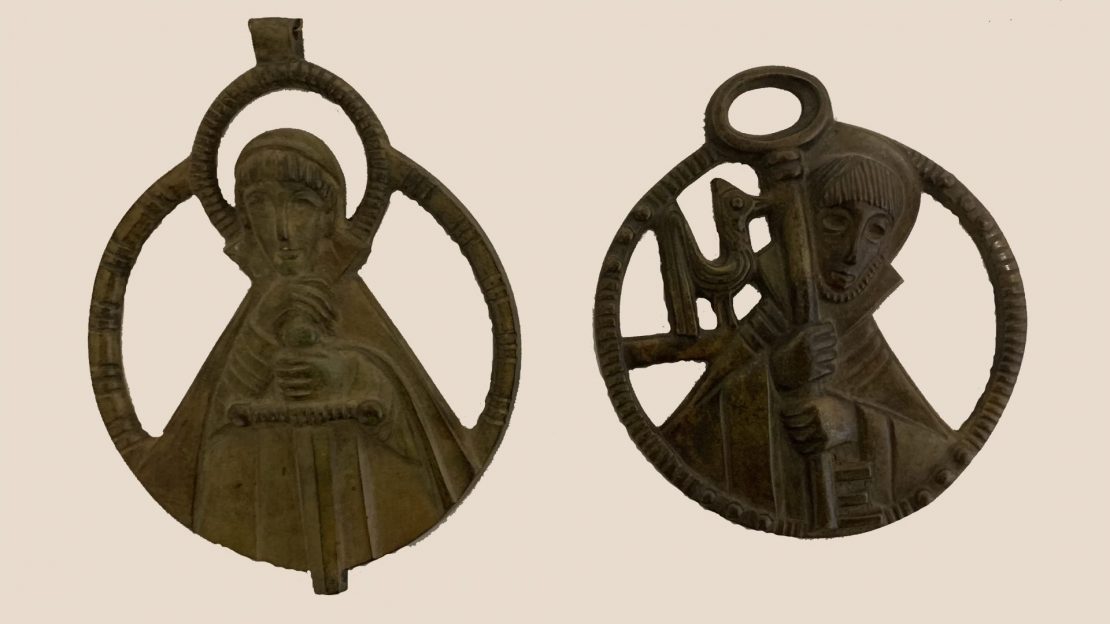Some weeks of the year have fewer feasts than others. Some are laden with feasts of the great figures of our tradition. This is a week from the latter. On this coming Monday we celebrate the Feast of St Peter and St Paul and on Friday the Feast of St Thomas. Three apostles in one week! Everyone has a view about these three apostles.
I have images of St Peter and St Paul in the hallway of my house and I walk past them every day. St Peter is grasping a key, as he is often portrayed. He holds the key tight to his chest as if it is the most precious thing he possesses. This is the key to the kingdom of heaven entrusted to him by Christ. “I will give you the keys of the kingdom of heaven; whatever you bind on earth will be bound in heaven, and whatever you loose on earth will be loosed in heaven” (Matthew 16:19). This is a great responsibility given to Peter. It is a reminder that Christ will never leave the Church and that the leadership of the Church has a great responsibility, along with all the faithful, to pray and to discern, to listen and to distill the movement of the Spirit within the Church and within the world as the binding and loosening ways of God are discovered and proclaimed. Pope Francis has called this the way of a synodal Church: a Church that listens to all, where every layer of the Church is heard and all views are considered along the way, before Peter teaches and guides. Peter leads but never without the voice of the flock in his ear.
My image of Peter, along with keys, has a ‘cock’ perched on his right shoulder. The image of the cock pushes Peter slightly off balance. It’s as if the cock is crowing directly into his right ear. The crowing cock is as much a part of Peter as is the large key. And the cock represents Peter’s denial. It is a reminder of his vulnerability and his fragility. It is a reminder of his sinfulness and his humanity. It is a reminder that our great St Peter, is as human and as vulnerable as the rest of us. It is also a reminder that he is forgiven and loved. It is a reminder that all who follow are also forgiven and loved as well as vulnerable and sinful.
In my hallway next to St Peter sits St Paul and he holds not a key but a sword. In his writings Paul refers to the Word of God as a sword. “And take the … sword of the Spirit, which is the word of God” (Ephesians 6:17). The author of the letter to the Hebrews, once believed to have been St Paul, uses a similar analogy and further explains why the Word of God is connected to a sword, “For the word of God is living and active, sharper than any two-edged sword, piercing to the division of soul and spirit, of joints and marrow, and discerning the thoughts and intentions of the heart” (Hebrews 4:12). The ‘Word of God’ has many senses. It can refer to the Biblical Word of God in both the First and Second Testament and it refers to Jesus Christ himself, God’s Word incarnate. For Paul both senses are true and his own writings are a testament to the way in which the Word of God has cut through into his life, reached his soul and inspired him to preach and teach the Gospel. Paul takes his sword, the Word of God, throughout the world on his missionary journeys. He is constantly seeking to find ways to find receptive ears and eyes to listen to the story of Jesus Christ, his life, his death and his resurrection. He is a creative teacher and preacher.
Peter and Paul feature large in the Acts of the Apostles. There we find them preaching, teaching, praying and working out the shape of the emerging Christian community. They had to be innovative in the way that they accompanied the diverse people who were captured by their preaching and teaching. Together, with that nascent community, they had to make decisions about what was important and how their community life should be lived out. Paul’s letters to the communities at Thessalonica, Rome, Ephesus, Philippia, Corinth and Colossia are enduring legacies of that dynamic. Peter and Paul’s debates about community life and regulation, recorded in the Acts of the Apostles similarly testifies to their energy, courage and ingenuity in building the earliest of Christian communities.
As we approach the Plenary Council 2020/2021 we would do well to call on the intercession of these two pioneering saints of the new testament communities. We should ask them to give us as much energy, boldness and creativity to respond to the rebirth and renewal of the Church in Australia.




Comments
Add Comment